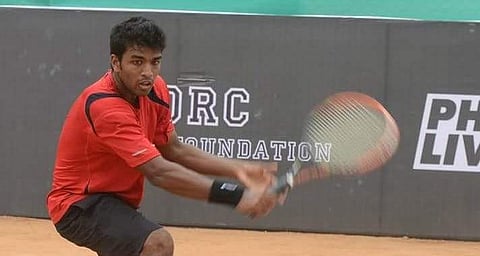

Having been a professional tennis player for a decade and a half, with a budding tennis career, an Association of Tennis Professionals (ATP) rank of 1600 and an all-India rank of 19, it's not easy transitioning to the other side and helping the next generation of players emerge.
However, being a tennis pro from Odisha and becoming a sports administrator adds a unique perspective and overall experience in the sports industry. Moreover, with the Indian sports industry recording 49% growth in 2022 according to the GroupM ESP’s Sporting Nation Report, there is significant scope for growth and building a rewarding career in sports management within India, with support from both the government and private sector.
As a professional athlete turned sports management professional, one's dedication, discipline, hard work and passion are transferred into the administrative aspects behind the scenes to build a thriving ecosystem. Athletes, with their unique exposure to professional sports, are poised to become highly effective and professional leaders of tomorrow.
One thinks back to Alex Ferguson, one of the greatest football managers of all time, who aided Cristiano Ronaldo in honing his talents and becoming one of the greatest footballers of all time. Ferguson might not have had a particularly rewarding football career himself but excelled as a club manager, enabling Manchester United to win the highest number of Premier League titles compared to any other club.
India's rising prominence in the global sports arena calls for a closer examination of the challenges and opportunities faced by athletes and administrators in the country, along with the development of the grassroots ecosystem. Fostering a culture of excellence, inclusivity, and innovation, the new National Education Policy (NEP) 2020 offers an opportunity to integrate sports as an integral part of the curriculum in schools and colleges, further enhancing the overall development of athletes. Sports is rightly touted as a nation-builder with the ability to unite a country.
The domain of sports management underscores the importance of holistic athlete development, teamwork and the exploration of various opportunities within the sports industry. It builds avenues for those interested in sports to explore a fruitful career while being closely involved in the sport they love.
Pursuing a dual MBA and MSc in International Sports Management from XAVIER-EMLYON Business School (XEBS), I see the opportunity to develop my track record as a professional athlete turned sports management professional contributing to the development of the national sports landscape in India.
Coming from a state where grassroots development, coaching and research are integral parts of Odisha's vision to excel in sports, I felt there could be no better time than now to initiate the transition.
Transitioning to Sports Administration
My tennis career had its fair share of challenges. From early success in my first tournament at the age of 10 to facing issues with coaches and overcoming injuries, I encountered obstacles that could test anyone's grit and determination. The pandemic further impacted the entire sports industry, and uncertainty about returning to the court motivated me to build a career beyond just playing.
Moreover, financial constraints and limited scholarships are stark realities faced by many athletes in India. The pandemic presented additional challenges as a professional tennis player as it was challenging to restart my tennis career from scratch. Realistically assessing the situation, I made the decision to shift focus to sports administration, leveraging my love for the sport in a new capacity.
Moreover, experienced sports professionals need to contribute to the growth and success of the next generation of athletes and truly pass on the baton. One must encourage young athletes to dream big, pursue their passion and strike a balance between sporting achievements, education, and lifelong career prospects. Managing mental and physical well-being and navigating the transition from athlete to administrator are important aspects to highlight.
Challenges in transitioning
Transitioning from an individual sport like tennis to working in a team environment posed new challenges. Tennis is a solo pursuit where you primarily listen to your coach. Interactions are more informal and blunt in nature.
On the administration side, however, it required adjusting to a team dynamic and understanding the emotions and needs of others, which was quite a shift in mindset. Collaboration, effective communication and building strong relationships are necessary to succeed in sports administration.
My advice to aspiring athletes is to play multiple sports and enjoy the games. By diversifying their sporting experiences, young athletes can find their passion and develop a well-rounded approach to sports.
While fame and success are natural aspirations, athletes should also explore opportunities in sports administration and other areas within the sports ecosystem since playing on the field must come to an end eventually.
After all, there are multiple paths to success in sports. While becoming a top athlete may be the ultimate dream, it is essential to recognise that sports administration, coaching and other roles within the industry are equally significant. By embracing a broader perspective, aspiring sports enthusiasts can find fulfilling careers and contribute to the growth and development of sports in India.
(The author, Ansu Bhuyan is pursuing his MBA and MSc in Sports Industry Management from XAVIER-EMLYON Business School (XEBS) and currently serving as an Assistant Manager, Sports Management and Development, Hockey Promotion Council, Sports and Youth Services Department, Government of Odisha)
